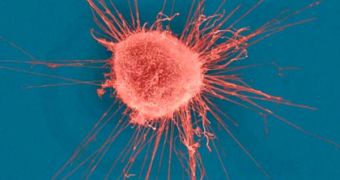In a move that could see the field of cancer therapy completely reshaped, scientists in the United Kingdom announce the completion of their laborious work in cracking the entire genetic code of cancer. This was only done for two of the most common forms of cancer, that of the lungs and the skin. Together, these two variants kill thousands of people each year, so developing new strategies of combating them is of the utmost importance, the BBC News reports.
The UK team, based at the Wellcome Trust, says that the new discoveries could be used for developing new methods of identifying these two forms of cancer earlier on in their development stage, potentially giving health experts more time to try various remedies. In addition, they add, the maps will provide bioengineers with new targets for their gene treatments. In other words, future medication against these diseases will target the underlying cause of skin and lung cancer directly, and not just the cancer cells and the actual tumors.
One of the most massive efforts in biology and medicine today is the creation of a list of all genes in the human body that malfunction when cancer appears. Once completed, this list, together with the new maps, will provide experts with a potent tool for the development of new strategies against the disease. At this point, there are several countries around the world involved in these efforts. The UK, for example, is examining issues related to breast cancer, whereas the United States investigates brain, ovary and pancreas cancer. In Asia, Japan is handling liver-cancer issues, India those linked to that of the mouth, while China is making progress in deciphering stomach cancer.
“These catalogs are going to change the way we think about individual cancers. By identifying all the cancer genes we will be able to develop new drugs that target the specific mutated genes and work out which patients will benefit from these novel treatments. We can envisage a time when following the removal of a cancer cataloging it will become routine,” the leader of the UK part of the efforts, Professor Michael Stratton, says. He reveals that the ten-country International Cancer Genome Consortium will need at least five years and several hundred thousand dollars to complete the work.
Speaking of the new achievement, the Institute of Cancer Research said in a statement that, “This is the first time that a complete cancer genome has been sequenced and similar insights into other cancer genomes are likely to follow. As more cancer genomes are revealed by this technique, we will gain a greater understanding of how cancer is caused and develops, improving our ability to prevent, treat and cure cancer.”

 14 DAY TRIAL //
14 DAY TRIAL //